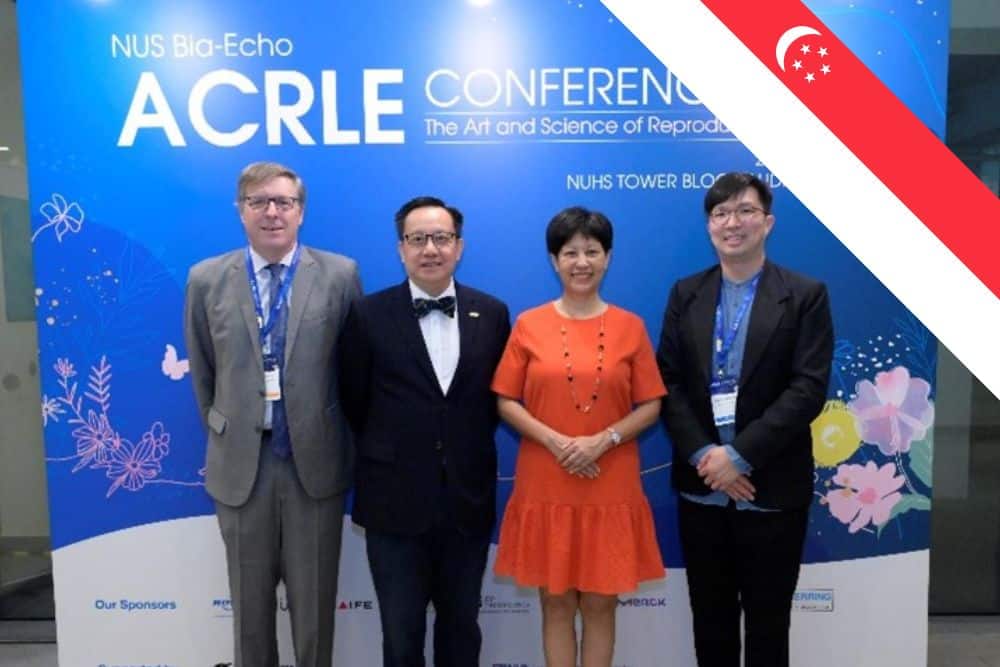In an era where women are living longer than ever, a significant gap in our understanding of reproductive health persists. The NUS Bia-Echo Asia Centre for Reproductive Longevity & Equality (ACRLE) at the Yong Loo Lin School of Medicine is pioneering research into one of the earliest ageing organs in women: the ovaries.
Since its inception in 2021, ACRLE has been at the forefront of investigating how to delay ovarian ageing, which could have profound implications for women’s health worldwide.
The Impact of Ovarian Health on Women’s Longevity
Ovarian ageing is a critical aspect of women’s health because it affects fertility. It also has implications for overall health and longevity. Research indicates that the health of the ovaries is a marker for general health and ageing. For example, early ovarian ageing is associated with an increased risk of age-related diseases such as osteoporosis and cardiovascular disease.
Insights from the Conference on Reproductive Ageing
During National Infertility Awareness Week, ACRLE hosted the “Art and Science of Reproductive Ageing” conference. The conference gathered experts across various fields to discuss advancements and challenges in reproductive health. Keynote speakers like Professor Yousin Suh of Columbia University shared groundbreaking research on the molecular and genetic underpinnings of ovarian ageing. This knowledge is crucial for developing interventions that could extend reproductive lifespan and improve overall health.
Additionally, Professor William Ledger discussed innovative uses of artificial intelligence and biomarkers to improve egg quality and fertility treatments. These improvements could significantly enhance the chances of conception, especially in older women.
Governmental Support and Policy Recommendations
At the ACRLE conference, Minister Indranee Rajah highlighted Singapore’s demographic challenges, including a declining fertility rate and an ageing population. She underscored the importance of supporting couples through initiatives like co-funding Assisted Conception Procedures and Elective Egg Freezing to counteract age-related fertility decline.
The Minister also stressed the need for societal support for couples undergoing fertility treatments. She recognised that fertility is a critical health and lifestyle issue that requires a broader societal approach, including flexible workplace arrangements and community support networks.
Ms Indranee stated, “Even as the work gets underway, we encourage our young Singaporeans to actively grow and develop relationships and plan towards their marriage and parenthood aspirations early while they pursue other life goals. In parallel, we will also develop a comprehensive suite of strategies, including policy interventions, foster societal norms that embrace children and families, and build family-friendly workplaces and communities. We must make a whole of society effort to strengthen the overall ecosystem of support for families and transform Singapore into a place that is truly Made For Families.”
The Broader Implications of Reproductive Research
The research at ACRLE aims to enhance fertility outcomes and improve women’s health across the lifespan. Understanding ovarian ageing can lead to better management of menopause and post-menopausal health issues, which is crucial as women spend a significant portion of their lives in this phase.
By focusing on reproductive health as a component of women’s overall well-being, ACRLE’s efforts are poised to transform the narrative around women’s health, emphasizing prevention and early intervention.
Conclusion
As ACRLE continues to push the boundaries of reproductive science, its work is a beacon of hope for improving women’s health outcomes globally. The integration of cutting-edge research, supportive public policies, and societal awareness can create a holistic environment that nurtures the health and well-being of women at all stages of life. The quest for reproductive longevity is not just about extending the biological clock but about enriching the quality of life for women everywhere.
Photo Caption: From left: Professor Brian Kennedy, Director of NUS Bia-Echo Asia Centre for Reproductive Longevity & Equality (ACRLE), Professor Chong Yap Seng, Dean of NUS Yong Loo Lin School of Medicine (NUS Medicine), Guest-of-Honour Ms Indranee Rajah, Minister in the Prime Minister’s Office, Second Minister for Finance and National Development, Dr Huang Zhongwei, Deputy Director of ACRLE
Photo Credit: NUS

